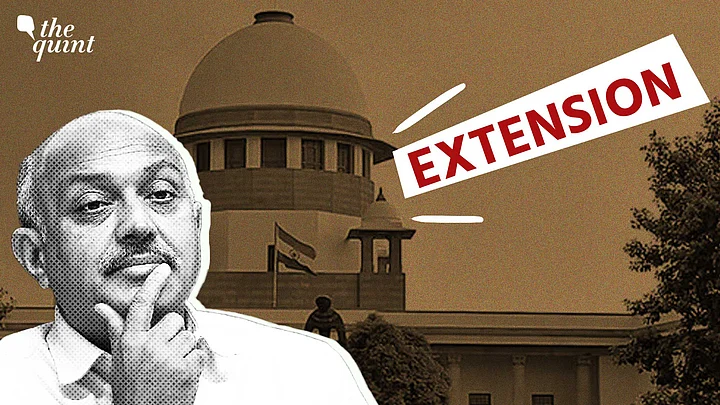The recent six-month extension of the tenure of Delhi Chief Secretary Naresh Kumar, who was due to retire on 30 November, appears to be at odds with the essence of the Constitutional Bench judgment dated 11 May and the Government of the National Capital Territory of Delhi (Amendment) Act, 2023.
Federalism is part of the basic structure of the Constitution of India, and there is a division of powers under the Seventh Schedule of the Indian Constitution.
The Supreme Court's landmark ruling in Government of NCT of Delhi vs Union of India established that the National Capital Territory of Delhi (NCTD) holds legislative and executive authority over "services" (Entry 41 of List II of the Seventh Schedule).
This was deduced from the application of the definition of "state" in Part XIV of the Constitution under Section 3(58) of the General Clauses Act of 1897. Thus, Part XIV is applicable to Union territories, and the exercise of rule-making power under Article 309 does not oust the legislative power of the appropriate authority to make laws over Entry 41 of the State List.
However, the Supreme Court's decision on 29 November allowed the Union government to extend the incumbent Delhi Chief Secretary's tenure without the Delhi government's say in the pertaining matter.
This seems to contradict the prior judgment by the Constitutional Bench dated 11 May which had further held that:
“161... We accordingly hold that references to “state government” in relevant Rules of All India Services or Joint Cadre Services, of which NCTD is a part or which are in relation to NCTD, shall mean the Government of NCTD.”
Delhi Government's Recommendation is Crucial
In our opinion and interpretation, the Constitutional Bench's ruling suggested the Delhi government's recommendation was crucial for the Chief Secretary's tenure extension. However, the Supreme Court made an exception for him – distinguishing this position from other officers under various rules.
By holding that the Chief Secretary of Delhi is differently placed than other officers under the All-India Services (Death-Cum Retirement Benefits) Rules 1958 or the Joint Cadre Rules, the Supreme Court was bound by the Constitutional Bench judgment, while the present judgment was passed by a three-judge bench.
Despite the possibility that GNCTD's recommendation may not be strictly applicable due to the Chief Secretary's oversight of Union Government matters, but tenure extension prerequisites of "with full justification" and "in the public interest" remain unmet.
The said conditions are not fulfilled as there are serious allegations against the Chief Secretary of Delhi and a pending investigation. Moreover, Chief Minister Arvind Kejriwal has recommended his immediate removal to Lieutenant Governor of Delhi Vinai Kumar Saxena. The said allegations cast serious doubts – and are against the said pre-conditions.
Judicial Consideration
In rendering its judgment on 29 November, the Supreme Court referenced EP Royappa vs State of Tamil Nadu & Anr (1974) (4) SCC 3. The said judgment states that the post of great confidence – a lynchpin in the administration – needs a rapport necessitating a rapport between him and the Chief Minister.
Despite the said judgment holding water as of date, the constitutional validity of the GNCTD (Amendment) Act, 2023, being sub judice, and the fact that the said amendment does not have any provision for the appointment or extension of the Chief Secretary, the Hon’ble Court stated that the Chief Secretary must comply with the directions of the elected government over matters on which their executive competence extends.
The Delhi government is arguing for a collaborative appointment process rather than a complete divestment of Union government power over the Chief Secretary. In my perspective, the court's assertion regarding the Lieutenant Governor of Delhi's sole discretion in making a reference to the Union Government for the appointment of the Chief Secretary doesn't appear reasonable.
The court's rationale highlighted the Chief Secretary's involvement in Union Government subjects, but overlooked his jurisdiction on over 100 other subjects under the GNCTD's superintendence, highlighting the need for alignment with Delhi's elected government guidance.
Reason and Analysis of the Judgment
Though the Constitutional Bench judgment dated 11 May passed by the Hon’ble Court has given detailed reasons for why the Delhi government’s control over services is necessary for proper democratic functioning, it also recognised the triple chain of accountability between the people, their representatives (MPs/MLAs), the Council of Ministers, and the bureaucrats.
The Hon'ble Court failed to recognise that a Chief Secretary's complete loss of confidence in the elected government breaks the accountability chain, perpetuating distrust between the elected government and bureaucracy in governance matters.
However, the court has stated in its own judgment that “the analysis in this order is confined to the evaluation of the case at the present stage without entering into any conclusive determination of the issues that are pending for adjudication before the Constitution Bench.”
(The authors are practicing Supreme Court lawyers and partners at MS Law Chamber. This is an opinion piece. The views expressed above are the author’s own. The Quint neither endorses nor is responsible for them.)
